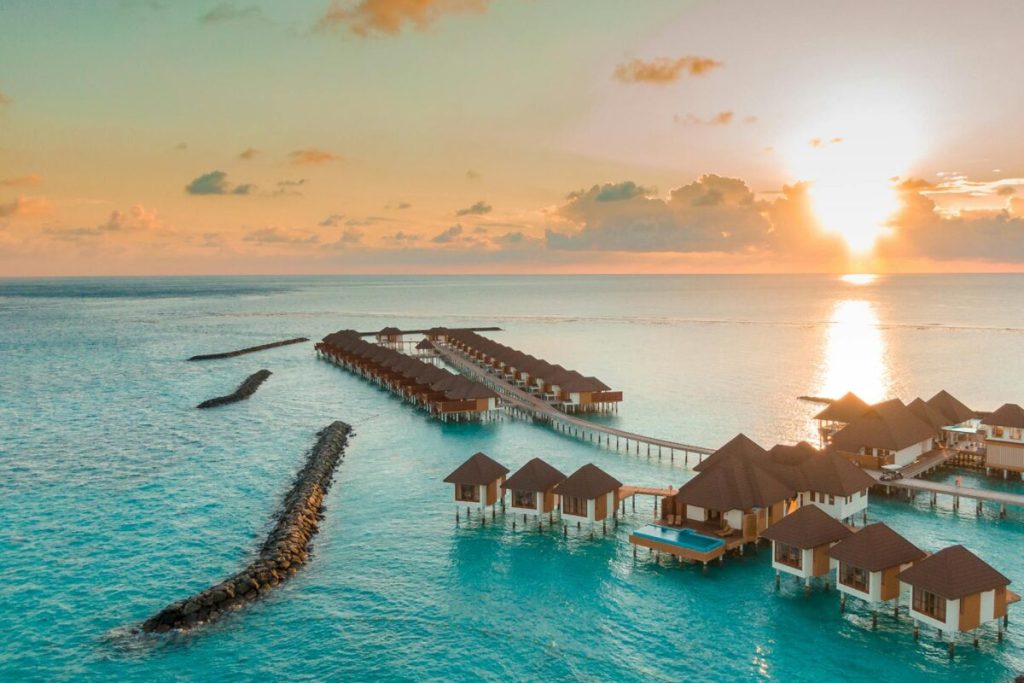The Maldives tourism minister, Ibrahim Faisal, recently made a plea to Indian visitors to return to the country, highlighting the critical role that tourism plays in the Maldivian economic framework. This plea comes in the wake of tensions that began four months ago when three Maldivian politicians made disparaging remarks about Indian Prime Minister Narendra Modi. As a result, Indian arrivals to the Maldives have dropped by more than 40%, impacting the country’s tourism industry significantly. Faisal emphasized the historical ties between India and Maldives, expressing a desire to mend the relationship and welcome Indian travelers back to the country.
The controversy that led to the boycott of Maldives by Indian tourists started after Modi’s visit to the Lakshadweep islands, with some social media users suggesting that the visit was meant to promote domestic tourism over international destinations like the Maldives. The derogatory remarks made by the Maldivian politicians about Modi further fueled the boycott, with Indian online travel agency EaseMyTrip suspending all flight bookings to the Maldives in response. As a result, India’s ranking as the second-largest tourism source market for Maldives has plummeted to the sixth spot, underscoring the impact of these diplomatic tensions on tourism between the two countries.
Maldives is keen to repair the relationship with India and welcome back Indian tourists. Faisal highlighted the significant potential of India’s large population as a key tourism market for the Maldives. The tourism minister expressed a desire to collaborate with India and promote peace and a friendly environment between the two countries. The Maldives tourism ministry is eager to increase Indian arrivals to the country, given that India was the largest tourism source market in 2023, accounting for over 11% of the total tourist arrivals in the Maldives. Plans are in place to organize roadshows in three Indian cities to attract more visitors from India.
The impact of the diplomatic standoff on the Maldivian tourism industry has been significant, with properties and resorts heavily reliant on the Indian market experiencing a sharp decline in business. Sonu Shivdasani, the CEO of resort chain Soneva, expressed concerns about the potential long-term effects of the boycott on the tourism industry and hoped for a reconciliation between the two countries. The Maldives Association of Travel Agents and Tour Operators is working to engage with the Indian market to mitigate the adverse effects of the boycott and attract more Indian tourists to the island destination. The tourism industry in the Maldives is closely monitoring the situation and making efforts to rebuild ties with India.
In conclusion, the plea from the Maldivian tourism minister for Indian visitors to return underscores the critical dependence of the Maldives on tourism for its economy. The impact of the diplomatic tensions between India and Maldives on the tourism industry highlights the interconnectedness of global relations and the vulnerability of tourism to external factors. As efforts are made to mend the relationship and welcome back Indian tourists, both countries stand to benefit from the mutual promotion of peace and friendship. The potential for increased Indian arrivals presents a significant opportunity for the Maldives to revitalize its tourism sector and strengthen its economic ties with India. By working together, both countries can overcome the challenges posed by the boycott and foster a sustainable and prosperous tourism industry in the Maldives.


